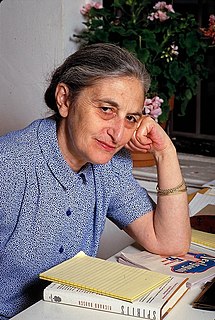Top 26 Quotes & Sayings by Ruth Prawer Jhabvala
Explore popular quotes and sayings by a German novelist Ruth Prawer Jhabvala.
Last updated on April 21, 2025.
First, I was so dazzled and besotted by India. People said the poverty was biblical, and I'm afraid that was my attitude, too. It's terribly easy to get used to someone else's poverty if you're living a middle-class life in it. But after a while, I saw it wasn't possible to accept it, and I also didn't want to.
Film, for me, is in two stages. One is when I write the script more or less on my own - that's the nice bit. And then comes for me the unpleasant bit when they all go off, 100 people - actors and camera people and film and sound - and I stay away. When they go into the editing room, I come in again, and that's the bit I like.























